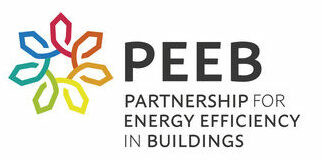With a financing from the PEEB Med program, in partnership with the European Union, this project aims to support the renovation and expansion of Saint Joseph’s Hospital in the Palestinian Territories, by integrating energy efficiency measures to reduce the hospital’s carbon footprint.
The ongoing conflict in the Gaza Strip has drastically increased the demands on the Palestinian healthcare system. As of early November, 94% of health facilities in Gaza had been damaged or destroyed, with only 17 of 36 hospitals providing inpatient care partially operational, according to the World Health Organization.
Even before the war, the Palestinian healthcare system faced immense pressure due to the growing needs of a young population grappling with deteriorating socio-economic conditions and the high fragmentation of the territories, which hampers an effective health response.
East Jerusalem hospitals form a cornerstone of the Palestinian healthcare system, treating 40% of patients who could not access adequate care in the West Bank and Gaza (prior to the war). Among these, Saint Joseph’s Hospital—founded in 1954 by the French Sisters of Saint-Joseph-de-l’Apparition as a private, non-profit general hospital under French protection—plays a vital role.
A Sustainable Hospital
The hospital’s renovation and expansion are supported by a €12 million grant from AFD, complemented by €1 million from the European Union through the PEEB Med program, specifically for energy efficiency measures.
“For the first time, we will be using an investment grant to implement ambitious energy efficiency measures in our hospital and significantly reduce its energy consumption,” explains Jamil Koussa, General Manager of Saint Joseph’s Hospital.
The project includes reinforcing thermal insulation, optimizing heating, cooling, and lighting systems, and increasing renewable energy production capacity.
The building sector accounts for nearly 40% of global greenhouse gas emissions, with hospitals ranking among the most energy-intensive structures. They consume two to five times more energy per square meter than conventional buildings. In this context, integrating energy efficiency into hospital infrastructure has become a critical strategy to combine health improvements with climate action.
Significant Impact on People and the Climate
Support from France and the European Union will enable Saint Joseph’s Hospital to modernize and expand its facilities, better addressing the growing demand for healthcare.
The project seeks to broaden the range of healthcare services available to the population by expanding outpatient clinics, modernizing the intensive care unit, and increasing patient capacity. It also supports training programs to strengthen human resources in the medical field, improve patient care, and address long-term challenges. These include inclusive patient care, improved governance, and enhanced consideration of environmental sustainability.

